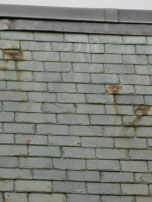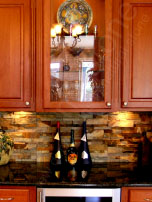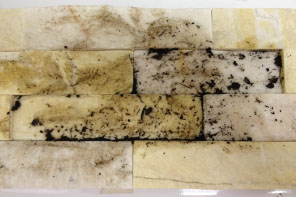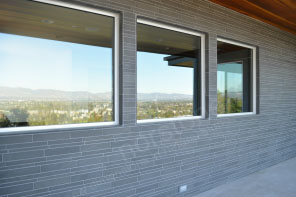Get to Know How to Clean Natural Stone
Natural stone is one of the oldest and most durable building materials in the world, and while manmade hard surfaces like ceramic and porcelain offer incredible ease of use, don’t discount natural stone because you think it might be hard to clean or keep up. A combination of selecting the right type of natural stone for your application, and some knowledge of natural stone care is all you need to enjoy a beautiful natural product and not worry about causing permanent damage.



(Examples of Good and Bad Natural Stone Installations)
Selecting the right type of natural stone is the first step in a sustainable natural stone installation. Some good rules of thumb are to avoid using soft, porous natural stones like limestone and travertine in installations that will be moisture prone, like a steam shower. Stones that tend to have a higher iron content, like some slate tiles or pavers, shouldn’t be used outdoors since they could potentially rust. Granite is a very durable hard material, and is a great choice for kitchen countertops since it can be directly cut on, whereas marble, a more porous stone might be damaged by sharp objects. Quartz and Quartz based sedimentary stones, like what Norstone Rock Panels are made from, are a very hard, crystalline structured stone that can be used indoors and out, even fully submerged in water.
 When your natural stone does get dirty, the most important concept in natural stone care is to use a cleaner appropriate for the type of stone. Many natural stones, particularly those with some calcium content, can be etched by many of the acid based cleaners on the market, which should be avoided. The primary way to clean natural stone is with a detergent based cleaner, applied with a plastic bristle brush and water, which is the go to for most topical and primary level stains. Deeper stains can be treated with non-acidic cleaners available in the market, like Nano Scrub made by Aquamix, which uses microscopic particles to penetrate the stain and remove it. Sulflamic Crystals can be used on some types of stone, which when mixed with water, form a potent cleaning agent to remove tough stains. There are even products on the market today that remove graffiti from natural stone, so know what type of stone you have and work your way up in cleaner level, starting with basic soap and water before moving on to more advanced chemical cleaners.
When your natural stone does get dirty, the most important concept in natural stone care is to use a cleaner appropriate for the type of stone. Many natural stones, particularly those with some calcium content, can be etched by many of the acid based cleaners on the market, which should be avoided. The primary way to clean natural stone is with a detergent based cleaner, applied with a plastic bristle brush and water, which is the go to for most topical and primary level stains. Deeper stains can be treated with non-acidic cleaners available in the market, like Nano Scrub made by Aquamix, which uses microscopic particles to penetrate the stain and remove it. Sulflamic Crystals can be used on some types of stone, which when mixed with water, form a potent cleaning agent to remove tough stains. There are even products on the market today that remove graffiti from natural stone, so know what type of stone you have and work your way up in cleaner level, starting with basic soap and water before moving on to more advanced chemical cleaners.
 A final question to be answered in any natural stone installation is whether or not the stone should be sealed, post installation. Norstone recommends that our Rock Panel and Basalt Interlocking Tile products be sealed on any exterior or heavy traffic installation, like a kitchen backsplash, with a penetrating water based sealer. Sealing the stone is going to provide the first line of defense against any potential staining and also make the inevitable clean up of stains easier than compared to unsealed stone.
A final question to be answered in any natural stone installation is whether or not the stone should be sealed, post installation. Norstone recommends that our Rock Panel and Basalt Interlocking Tile products be sealed on any exterior or heavy traffic installation, like a kitchen backsplash, with a penetrating water based sealer. Sealing the stone is going to provide the first line of defense against any potential staining and also make the inevitable clean up of stains easier than compared to unsealed stone.
When it comes to hard surface finish materials, natural stone is the real deal, offering a combination of durability and unparalleled beauty that simply can’t be duplicated in a factory. Caring for Natural Stone is a simple and easy process, especially when the correct stone has been selected for the job and is a very small price to pay for the value natural stone adds to any project.
.png)



